Hey guy im looking to display some data from my oracle DB. im looking to group it by common data/column but cant figure it out.
$stid = oci_parse($conn, " SELECT REQ.REQSTN_NO, REQ.WO_NO, REQ.COST_CENTRE_CD, REQ.ACCT_PRIME_CD, REQ.ACCT_SUBSDRY_CD, REQ.STOCK_CD
FROM TE.REQSTNREQ
WHERE REQ.DEPT_CD='ISN'");
oci_execute($stid);
while (($row = oci_fetch_array($stid, OCI_BOTH+OCI_RETURN_NULLS)) != false) {
echo $row['COST_CENTRE_CD']."-".$row['ACCT_PRIME_CD']."-".$row['ACCT_SUBSDRY_CD']." ".$row['WO_NO']." ".$row['REQSTN_NO']." ".$row['STOCK_CD']."<br />";
}
Im looking to create an output like this
Ive tried Group BY and SUM/COUNT but i dont know how to structure the code properly any help would be appreciated.

